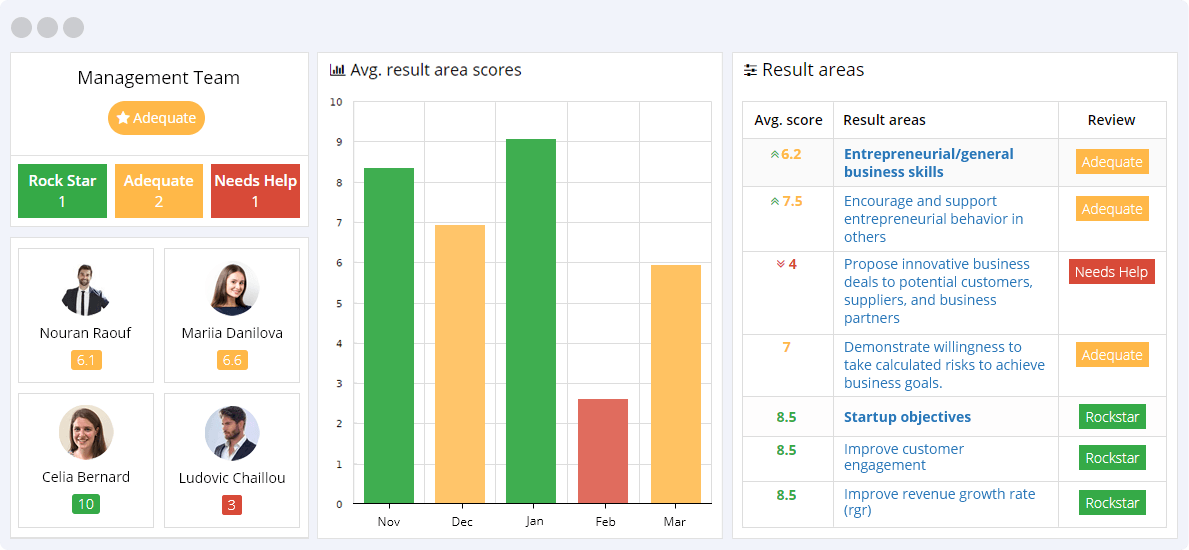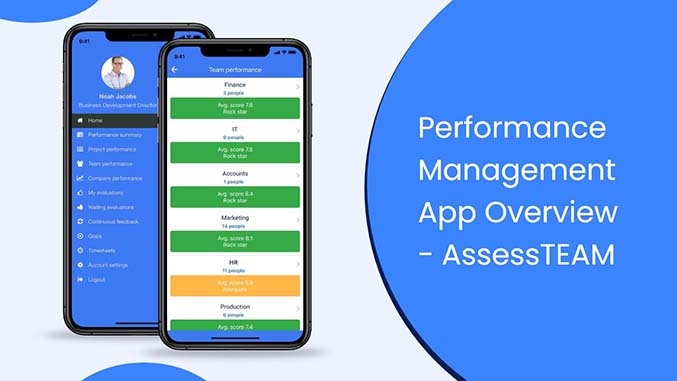Startup Objectives
Start-up KPIs are crucial in assessing the success and growth of a new business. These metrics help measure key performance areas like customer acquisition, revenue growth, and market penetration, allowing the company to make data-driven decisions and improve overall efficiency.
- Increase market opportunities – The market opportunities KPI measures the extent to which a startup has explored all opportunities to market its products or services. A startup, like any business, must understand its market. The investigation of marketable opportunities is achieved through market research, allowing the startup to realize its potential target audience.
- Increase income – The income metric is a vital figure that all startups must track. Without income, the startup cannot survive or grow into a flourishing, stable business.
View all
- Improve Customer acquisition Cost (CAC) – The Customer Acquisition Cost (CAC) measures the cost of acquiring customers. Customers are your startup’s lifeblood. So it is essential to be laser-focused on customer metrics like the CAC. It is measured over time and calculated by dividing your marketing and sales costs by the number of new customers.
- Improve funding health – Funding health is an essential metric to measure. One of the primary reasons startups fail is they run out of cash. Funding health tracks how much money the startup has over time. A successful startup will manage its funds to ensure that it doesn’t run out of cash.
- Improve customer engagement – Customer engagement describes the number of customers that are actively engaged with the startup’s products or services. The more customers a startup has, the greater the chance the startup has of turning a profit and growing into a stable business.
- Improve loyalty – The loyalty KPI tracks and measures the number of loyal customers it has. It is cheaper to retain loyal customers than to convert a target audience member into a customer. Measuring customer loyalty demonstrates the number of loyal customers and provides a benchmark to improve this number.
- Improve Customer Retention Rate (CRR) – The Customer Retention Rate (CRR) measures the number of customers that stick with your business over time, such as monthly, quarterly, six-monthly, and annually. The number of new clients acquired is not included in this metric.
- Improve Revenue Growth Rate (RGR) – The Revenue Growth Rate (RGR) measures the increase or decrease in the startup’s revenue or sales generated over time. This metric indicates how quickly a startup is growing. It is also a useful statistic that enables management to make strategic decisions.
- Improve the burn rate – The burn rate is the speed at which a startup uses up its cash resources. The higher the burn rate, the sooner the startup will need to consider additional funding. The lower the burn rate, the better the startup’s financial health, and the longer it can go without considering financing.
View less
Entrepreneurial/General Business Skills
Entrepreneurial/General Business Skills KPIs are designed to track and measure the performance of key entrepreneurial and business competencies, such as financial management, leadership, marketing, and innovation.
- Demonstrates willingness to take calculated risks to achieve business goals.
- Encourages and supports entrepreneurial behavior in others.
View all
- Notices and seizes profitable business opportunities.
- Overall entrepreneurial/general business skills.
- Proposes innovative business deals to potential customers, suppliers, and business partners.
- Stays abreast of business, industry, and market information that may reveal business opportunities.
View less
Project & Account Manager Job Responsibilities
Project and Account Manager KPIs are designed to track and measure their ability to effectively manage projects and accounts, including KPIs such as on-time project delivery, customer satisfaction, revenue growth, and team performance.
- Act as the key point of contact for owned client relationships for the client’s brand.
- Champion quality of work delivered to clients.
View all
- Establish strong relationships with all teams.
- Keep meticulous documentation, managing and maintaining client communications and transactions.
- Lead strategic meetings, presentations and provide insights to project teams and clients.
- Lead the development and execution of account plans.
- Oversee the preparation of financial documents regarding project financials.
- Run full cycle management of client expectations.
View less
Management Trainee Job Responsibilities
Management trainee KPIs focus on measuring the trainee’s ability to learn and acquire the necessary skills to become an effective manager. These may include KPIs such as meeting training milestones, improving performance metrics, and demonstrating leadership potential.
- Customer complaints received.
- The percentage of incoming calls answered within 30 seconds.
View all
- The percentage of items returned.
- The proportion of sales accounted for by returning customers.
- The time it takes to fulfill an order.
View less
The primary role of an organization’s management is to guide the organization in new directions, lead operations, and monitor growth and development progress. KPIs are a critical aspect to ensure that senior management continues to lead the organization along the path of financial success and profitability.
Real-time tracking of Key Performance Indicators allows for the comprehensive tracking of all KPIs linked to all of the management profiles within an organization. These include skills like entrepreneurial business skills, business leadership and vision, market leadership and the proposition of new business deals, sales account management, and increase profitability and reduce loss-making ventures.



